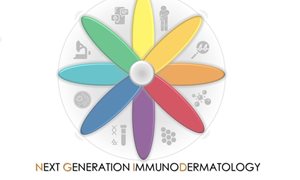22 March 2018
The funding will support an eight-year research initiative titled, "Activation of the aryl hydrocarbon receptor (AHR) and epithelial integrity."The AHR is activated by ligands, which are specific chemicals which include dioxin and polycyclic aromatic hydrocarbons. But this receptor also binds some endogenous ligands, such as tryptophan metabolites and certain microbial metabolites. Activation can dampen or enhance the inflammatory response, and too much stimulation can cause toxicity and perhaps contribute to chronic disease. The balance between AHR activation and repression requires a tight control but this mechanism is poorly understood. The grant will support studies examining how activating the Ah receptor in the epithelial layer of the skin or gut affects barrier function, production of antimicrobial peptides and resistance to invading bacteria.
The Laboratory for Experimental Dermatology of the Radboudumc receives $600.000 to specifically study the role of the AHR in skin barrier homeostasis and targeting of the receptor to treat inflammatory skin diseases.The program gives scientists intellectual and administrative freedom, as well as sustained support to pursue research in novel directions and to embark on long-term projects that have unusual potential to achieve greater impacts.
 Collaboration with Penn State University results in an eight-year research initiative titled, "Activation of the aryl hydrocarbon receptor and epithelial integrity".
Collaboration with Penn State University results in an eight-year research initiative titled, "Activation of the aryl hydrocarbon receptor and epithelial integrity".
The funding will support an eight-year research initiative titled, "Activation of the aryl hydrocarbon receptor (AHR) and epithelial integrity."The AHR is activated by ligands, which are specific chemicals which include dioxin and polycyclic aromatic hydrocarbons. But this receptor also binds some endogenous ligands, such as tryptophan metabolites and certain microbial metabolites. Activation can dampen or enhance the inflammatory response, and too much stimulation can cause toxicity and perhaps contribute to chronic disease. The balance between AHR activation and repression requires a tight control but this mechanism is poorly understood. The grant will support studies examining how activating the Ah receptor in the epithelial layer of the skin or gut affects barrier function, production of antimicrobial peptides and resistance to invading bacteria.
The Laboratory for Experimental Dermatology of the Radboudumc receives $600.000 to specifically study the role of the AHR in skin barrier homeostasis and targeting of the receptor to treat inflammatory skin diseases.The program gives scientists intellectual and administrative freedom, as well as sustained support to pursue research in novel directions and to embark on long-term projects that have unusual potential to achieve greater impacts.
Related news items

Large NWA ORC grant awarded for national skin research: Next Generation ImmunoDermatology
23 March 2022Research for better treatment methods for chronic skin diseases.
go to page
Best publication award of 2019 in dermatology awarded to Jos Smits and Tom Ederveen
30 September 2020The Dutch Society for Experimental Dermatology (NVED) awarded the publication in Journal of Investigative Dermatology of Jos Smits and Tom Ederveen.
go to page
A personal touch of Hanna Niehues
5 May 2019 In order to promote interaction amongst colleagues within RIMLS, we have a ‘personal touch’ series setting employees in the spotlight. A light-hearted manner to learn about the colleagues you know and those you don’t. This week: Hanna Niehues. go to page
EU funded project BIOMAP led by Ellen van den Bogaard
12 April 2019 Ellen van den Bogaard, theme Inflammatory diseases, leads the research on the experimental validation and functional analysis of identified biomarkers by using advanced organotypic skin models and receives a grant of €258,000. go to page
Celebrations to mark the retirement of Joost Schalkwijk
21 February 2019 With a mini symposium (‘Oppervlakkig en toch diepgaand’) and reception a passionate researcher of the RIMLS said farewell. After 36 working years Joost Schalkwijk, theme Inflammatory diseases, will enjoy his retirement. go to page
